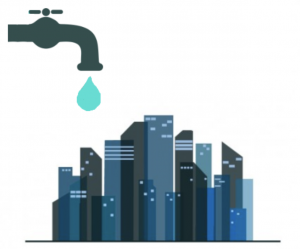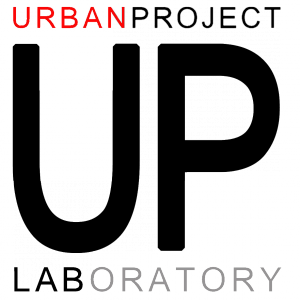Research labs
Environmental Hydraulics and Hydraulic Risk Laboratory EH2R_lab
 Carries on research activity in the field of Hydraulics, with a focus on Hydraulic Risk, Environmental Hydraulics, and Computational Fluid Dynamics (CFD). EH2R_lab includes a laboratory facility for the realization of small- and medium-scale experiments in hydraulic flumes, as well as a variety of instrumentation for flow-rate measurements in irrigation channels and natural streams (propeller flow meters, ADV Acoustic Doppler Velocimeters, ADCP Acoustic Doppler Current Profilers, etc…). Beyond several national and international research collaborations, the EH2R_lab cooperates with public agencies such as the Po River Basin Authority (AdBPo), the Interregional Agency for the Po River (AIPo), the Environmental Protection Agency (ARPA) of Lombardy, the Lombardy Region, the Pavia Province and the International Commission for the Protection of the Italian-Swiss Waters (CIPAIS).
Carries on research activity in the field of Hydraulics, with a focus on Hydraulic Risk, Environmental Hydraulics, and Computational Fluid Dynamics (CFD). EH2R_lab includes a laboratory facility for the realization of small- and medium-scale experiments in hydraulic flumes, as well as a variety of instrumentation for flow-rate measurements in irrigation channels and natural streams (propeller flow meters, ADV Acoustic Doppler Velocimeters, ADCP Acoustic Doppler Current Profilers, etc…). Beyond several national and international research collaborations, the EH2R_lab cooperates with public agencies such as the Po River Basin Authority (AdBPo), the Interregional Agency for the Po River (AIPo), the Environmental Protection Agency (ARPA) of Lombardy, the Lombardy Region, the Pavia Province and the International Commission for the Protection of the Italian-Swiss Waters (CIPAIS).
The Laboratory of Urban Hydrology and Hydraulics LIIU
It carries out both basic and applied research in the fields of Hydrology and Hydraulic Constructions in the urban environment.
 In the field of Hydrology and hydraulic constructions, its activities are focused on: statistical analysis of meteo-climatic series; rainfall-runoff transformation in urban, rural, and natural areas; pollution associated with runoff in urban areas and related mitigation strategies; resilience of water services to climate change; real-time optimization and control of aqueduct and urban drainage networks; Water Safety Plans in the aqueduct context and disinfection strategies; Best Management Practices for the control of urban meteoric runoff; management and removal of sewage sediments.
In the field of Hydrology and hydraulic constructions, its activities are focused on: statistical analysis of meteo-climatic series; rainfall-runoff transformation in urban, rural, and natural areas; pollution associated with runoff in urban areas and related mitigation strategies; resilience of water services to climate change; real-time optimization and control of aqueduct and urban drainage networks; Water Safety Plans in the aqueduct context and disinfection strategies; Best Management Practices for the control of urban meteoric runoff; management and removal of sewage sediments.
In the field of Hydraulics, its activities are focused on the computer modeling of single- and multi-phase free surface and confined flows of Newtonian and non-Newtonian fluids, on interaction phenomena with coherent and incoherent solid media, solute transport phenomena related to: flows in aqueducts, sewers and water bodies; sediment dynamics in erosion flows and landslides; wind waves and tsunamis; underground water flows; offshore hydrodynamics.
The Laboratory of Advanced Water Treatment LabTA2 operates mainly in the field of urban and industrial wastewater treatments and of the disposal of solid and liquid waste.
- An active research topic is that of microbial fuel cells. Microbial Fuel Cells represent a revolutionary technology for energy recovery from wastewater treatment. They allow the generation of electricity through the bio-catalyzed oxidation of the organic substances contained in the wastewater.
- Research on this topic is carried out on laboratory-scale plants, which are monitored to determine the best construction materials, configurations, and the most suitable operating conditions for bacterial activity. The research activity is carried out in close collaboration with the Power Electronics Laboratory of the University of Pavia and other Italian and foreign research institutes.
The Telecommunication and Remote Sensing Lab features more than 25 years of record track in research on Remote Sensing, Earth Observation, and Communication topics including sensor networks and IoT. The focus is on fusion and joint analysis of data from spaceborne Earth observing sensors, networks of local sensors, and other geospatial information to support applications, especially in the field of urban and agricultural monitoring. Processing techniques range from traditional approaches to Machine Learning and Deep Learning. On the side of educational activities, the research group supports a record track on “Space Communication and Sensing” set up within the graduate course in Electronic Engineering at the University of Pavia; the companion FabSpace Lab is part of the global FabSpace network, endorsed by the European Space Agency. The research group can boast a vast network of international cooperation.
The Geomatics Laboratory LABGEO operates since more than 40 years in the field of land survey and geographical information. The laboratory develops its research activities mainly in the fields of classical and satellite topography, aerial and drone photogrammetry, aerial and terrestrial LIDAR, remote sensing, and GIS science. More recently, it has been also involved in the application of machine learning and artificial intelligence techniques to the mentioned fields. The research carried out in the laboratory is mainly dedicated to methodological aspects and partly focused on applicative topics, always addressed in the context of multidisciplinary collaborations carried out with sector specialists in: agronomy, archeology, geotechnical engineering, geology, hydraulic engineering, urban planning, epidemiology, structural engineering, and air pollution control. To support teaching and research activities, the laboratory is equipped with a wide and modern variety of instrumentation (high precision total stations, multi-constellation GNSS receivers, digital levels, several high-profile workstations for management and elaboration of complex datasets, high-quality stereoscopic viewers). The laboratory also hosts a permanent GNSS station which contributes to the definition of the Italian geodetic reference system. Finally, the laboratory manages a historical archive and a territorial database for Pavia and its Province, consisting of aerial images, digital and raster maps, LIDAR data, satellite images, Digital Terrain Models (DTM), and orthophotos.
 The Urban Project Laboratory UPLab studies urban, territorial, environmental and sustainability phenomena and the related planning and design tools. Its activity focuses on the concept of the 3S City: Smart, Sustainable and Safe concerning the variability of urban phenomena (flexibility), and is mainly included the ERC sector SH7 “Human Mobility, Environment, and Space: Human geography, demography, health, sustainability science, territorial planning, spatial analysis”.Considering cities as complex systems, the central aspects of its research are the cultural approach linked to flexibility and the study of planning tools. The application of smart devices, remote sensing, and multidisciplinary ICT models is related to the environmental quality of the settlements and the analysis of urban and territorial risk, and the healthy city.
The Urban Project Laboratory UPLab studies urban, territorial, environmental and sustainability phenomena and the related planning and design tools. Its activity focuses on the concept of the 3S City: Smart, Sustainable and Safe concerning the variability of urban phenomena (flexibility), and is mainly included the ERC sector SH7 “Human Mobility, Environment, and Space: Human geography, demography, health, sustainability science, territorial planning, spatial analysis”.Considering cities as complex systems, the central aspects of its research are the cultural approach linked to flexibility and the study of planning tools. The application of smart devices, remote sensing, and multidisciplinary ICT models is related to the environmental quality of the settlements and the analysis of urban and territorial risk, and the healthy city.

